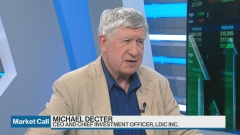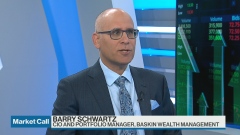8h ago
Auto Union Blasts $9.2 Billion Ford Loan for Creating ‘Low-Road Jobs’
, Bloomberg News
(Bloomberg) -- The United Auto Workers union criticized a $9.2 billion US government loan to Ford Motor Co. and South Korea’s SK On as a “massive” handout to a venture creating “low-road jobs.”
“Why is Joe Biden’s administration facilitating this corporate greed with taxpayer money?” UAW President Shawn Fain said in a statement Friday. “The switch to electric engine jobs, battery production and other EV manufacturing cannot become a race to the bottom. Not only is the federal government not using its power to turn the tide — they’re actively funding the race to the bottom.”
Read More: Ford Gets More Government Aid for EVs Wall Street Has Doubted
The US Department of Energy said Thursday it’s giving Ford and SK On the largest loan ever from a program to promote green transportation for three battery plants the companies are building in Kentucky and Tennessee. The factories due to open mid-decade will employ more than 7,500 workers, but it’s not yet clear if they will be represented by a union. The UAW is bracing for fight over the switch to EV manufacturing in contract talks with the Detroit automakers this summer.
The UAW said wages at a General Motors Co. joint venture battery plant in Ohio are half what workers made when the facility previously manufactured traditional internal combustion engine cars.
“Not only is the White House refusing to right this wrong, they’re giving Ford $9.2 billion to create the same low-road jobs in Kentucky and Tennessee,” Fain said. “It’s an absolute shame to see another Democratic administration doubling down on a taxpayer-funded corporate giveaway.”
Ford defended its efforts, saying the plants being funded by the government loan will create 7,500 “good-paying” jobs.
“Ford Expects BlueOval SK will pay competitive wages and benefits to attract and retain the workforce needed to build high-tech batteries,” the company said in an emailed statement. “Employees at BlueOval SK’s battery plants will be able to choose whether they organize, a right that Ford fully respects and supports.”
(Updates with Ford comment in final two paragraphs.)
©2023 Bloomberg L.P.





